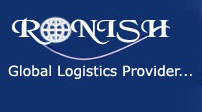
Port agency services in Nigeria are integral to the smooth operation of maritime shipping, ensuring efficient cargo movement through seaports. These specialized service providers act as intermediaries between ship owners, operators, charterers, and port authorities, streamlining port operations and regulatory compliance.
In this guide, I will explore the critical functions of port agency services in Nigeria, the comprehensive solutions they offer, and their significance in the global shipping industry.
Understanding Port Agency Services in Nigeria
Port agencies play a pivotal role in maritime logistics by ensuring cost-effective, efficient, and legally compliant port operations. Acting as liaisons, they bridge the gap between shipowners, operators, port authorities, and service providers, facilitating seamless coordination.
Key Functions of Port Agency Services in Nigeria
Port agencies perform a wide range of essential tasks to guarantee smooth vessel and cargo operations. Here are some of their primary responsibilities:
1. Vessel and Cargo Clearance
Port agencies manage the necessary paperwork for vessel and cargo clearance, ensuring compliance with regulatory, customs, and immigration requirements. By handling permits, licenses, and clearances, they help shipowners save time and avoid bureaucratic delays.
2. Bunkering Services
Port agencies facilitate efficient refueling by negotiating with local bunker suppliers to secure competitive prices and reliable services. They ensure compliance with safety and environmental regulations, minimizing operational risks.
3. Crew Welfare Services
Ensuring the well-being of seafarers is a priority for port agencies. They coordinate medical assistance, repatriation, shore leave, and crew changes while assisting with immigration and visa procedures to provide a hassle-free experience for crew members.
4. Stevedoring and Cargo Handling Coordination
Efficient cargo handling is crucial for timely operations. Port agencies collaborate with stevedores, terminal operators, and labor unions to oversee loading and unloading, reducing damage risks and operational delays.
5. Customs and Immigration Compliance
By liaising with customs authorities, port agencies ensure accurate documentation and adherence to import and export regulations. Their expertise helps clients avoid penalties and delays that could disrupt supply chains.
6. Navigational Support
Port agencies provide vessels with crucial navigational updates, including tide and weather reports, port regulations, and potential hazards. This information enhances safety and operational efficiency.
7. Security and Safety
To mitigate security threats such as piracy and terrorism, port agencies coordinate with local security authorities. Their proactive measures contribute to a safe and secure maritime environment.
8. Financial Management
Port agencies handle various financial responsibilities, including port dues, pilotage fees, and other expenses. Their efficient fund management and detailed financial reporting simplify financial processes for vessel owners and operators.
Importance of Port Agency Services in Nigeria
Port agency services in Nigeria are indispensable in the global shipping industry. Here’s why they are crucial:
1. Enhanced Efficiency and Time Savings
By streamlining port operations, port agencies minimize turnaround times and costs for shipowners. Their expertise in regulatory compliance and service coordination allows maritime stakeholders to focus on core business activities.
2. Risk Mitigation
Port agencies help mitigate risks related to compliance, cargo handling, and security by ensuring adherence to legal and safety standards. This reduces the likelihood of operational disruptions and financial losses.
3. Local Expertise
Operating in a specific port requires in-depth knowledge of local regulations and practices. Port agencies leverage their local expertise to navigate international trade complexities, ensuring smooth operations.
4. Crisis Management
In case of emergencies, port agencies provide quick and effective crisis management solutions. Their extensive networks enable them to respond swiftly, minimizing disruptions to vessel and cargo operations.
5. Improved Crew Welfare
By facilitating crew changes, medical assistance, and shore leave, port agencies enhance seafarers’ well-being, contributing to better job satisfaction and operational efficiency.
Partner with Ronish Nigeria Limited—Your Trusted Port Agency Partner
In the fast-paced maritime industry, efficiency, compliance, and seamless coordination are paramount. Ronish Nigeria Limited is a leading provider of port agency services in Nigeria, ensuring smooth vessel operations, cargo handling, and regulatory compliance at Nigerian ports.
With deep expertise in local regulations and industry best practices, Ronish Nigeria Limited offers end-to-end solutions tailored to shipowners, operators, and charterers. From vessel clearance and bunkering to crew welfare and financial management, we handle the complexities so you can focus on your business.
Contact us today to experience world-class port agency services in Nigeria that drive seamless maritime operations!
Conclusion on Port Agency Services in Nigeria
Port agency services in Nigeria are vital for ensuring the efficiency and compliance of maritime operations. By managing regulatory requirements, cargo handling, and vessel services, these professionals enable smooth port operations.
By partnering with experienced port agency providers, maritime stakeholders can ensure their vessels and cargo are in capable hands, optimizing operational efficiency and reducing logistical challenges.
